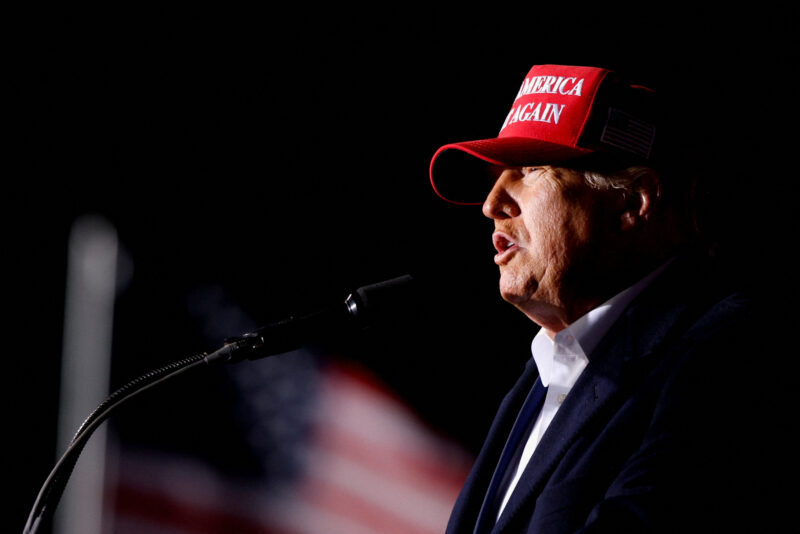Several witnesses may have lied under oath during a grand jury investigation of former President Donald Trump’s efforts to overturn his 2020 election defeat in Georgia, according to excerpts from the grand jury’s findings released on Thursday.
The grand jury also concluded that there was no widespread fraud in the election, despite Trump’s false claims that fraud caused his defeat, and delivered recommendations on indictments to prosecutors, the document showed.
Those recommendations – along with the bulk of the report – will remain sealed for now, pursuant to a judge’s order.
Trump was not subpoenaed as a witness and did not appear before the grand jury, his lawyers have said. He has not been charged with any crime.
Among those who gave sworn testimony were close Trump allies such as lawyer Rudy Giuliani and Republican U.S. Senator Lindsey Graham, as well as top Georgia officials including Republican Governor Brian Kemp.
The excerpts released on Thursday did not name any specific witnesses or accuse any individuals of perjury.
Fulton County Superior Court Judge Robert McBurney permitted three portions of the report to be released: the introduction, the conclusion and a section laying out concerns that some witnesses may have lied under oath.
McBurney said the report included “a roster of who should (or should not) be indicted.” But the judge ruled those details would stay secret for now out of concern that people named have not had an adequate opportunity to defend themselves.
Thursday’s release included just five pages from the report.
“A majority of the Grand Jury believes that perjury may have been committed by one or more witnesses testifying before it,” the report said, adding that it recommended prosecutors consider appropriate charges.
An attorney for Trump did not immediately respond to a request for comment.
Fulton County District Attorney Fani Willis opened an investigation shortly after Trump in January 2021 called a Georgia state official asking him to “find” just enough votes to declare the Republican incumbent the winner in the state rather than Democrat Joe Biden.
Trump, who has launched another run for the White House in 2024, has made false claims that the 2020 election was stolen from him through widespread voting fraud. He has denied wrongdoing and accused Willis of targeting him for political reasons.
The Georgia investigation is one of several threatening Trump, including separate U.S. Justice Department inquiries into his retention of classified materials after leaving office as well as his efforts to invalidate the 2020 election results.
The special grand jury was not empowered to issue indictments, only recommendations, and the decision on whether to press charges ultimately rests with Willis, the district attorney. If she decides prosecution is warranted, she would need to pursue indictments from a regular grand jury.
At a January court hearing on whether to release the report, Willis said charging decisions were “imminent.”
Trump called Georgia’s top election official, Brad Raffensperger on Jan. 2, 2021, and claimed falsely that the election results were fraudulent. A recording of the call was leaked.
“I just want to find 11,780 votes, which is one more than we have, because we won the state,” said Trump, referring to the margin of 11,779 votes by which Biden won.
Four days later, a mob of Trump supporters stormed the U.S. Capitol in a failed bid to stop Congress from certifying Biden’s victory.
Willis has also examined a scheme in which a slate of alternate electors falsely asserted that Trump had won Georgia in an unsuccessful effort to award the state’s electoral votes to him rather than Biden.
(Reporting by Joseph Ax in Princeton, New Jersey, additional reporting by Jack Queen and Andrew Goudsward; Editing by Scott Malone and Alistair Bell)

